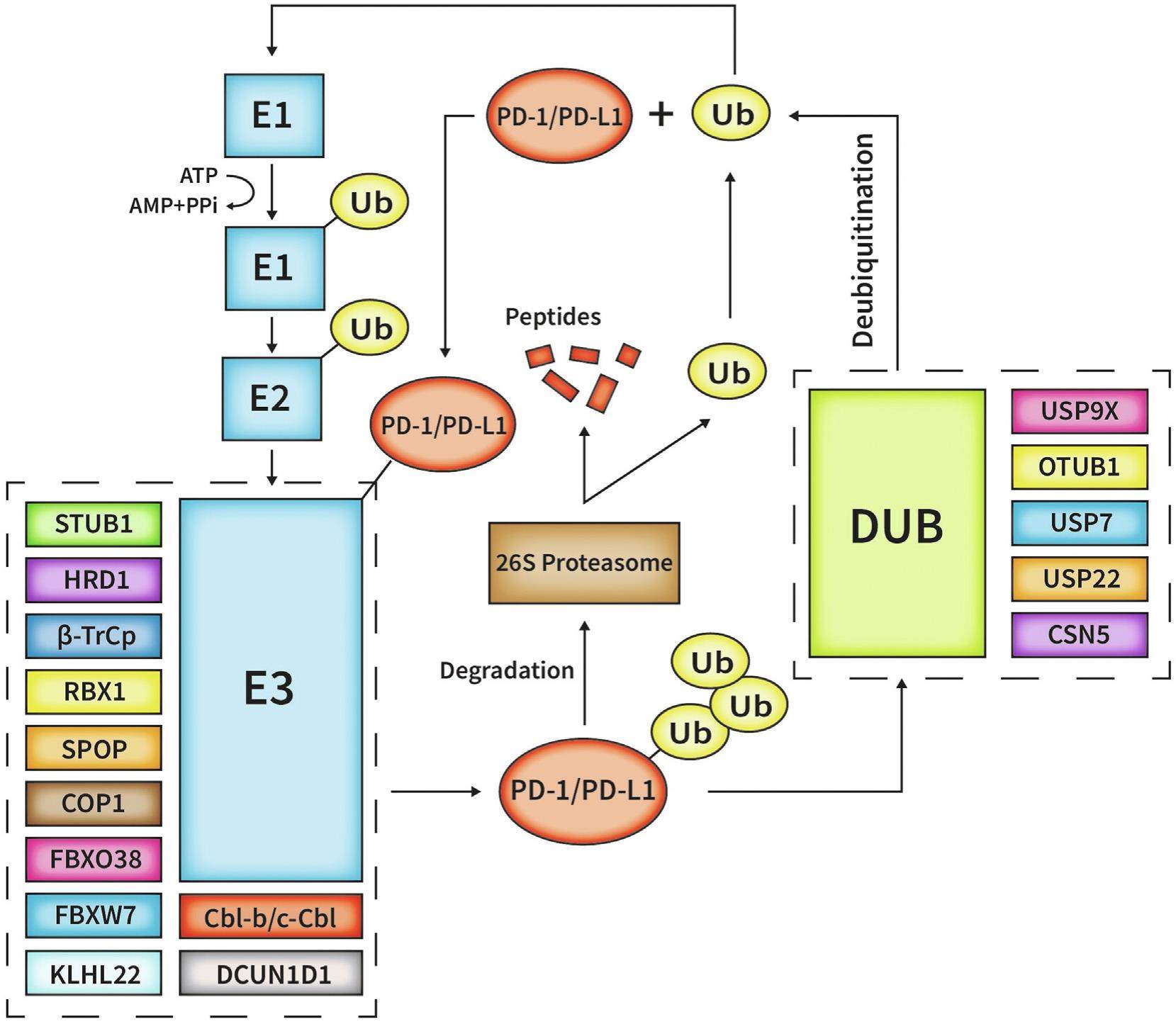
Emerging role of ubiquitination/deubiquitination modification of PD-1/PD-L1 in cancer immunotherapy


As members of the immune checkpoint family, PD-1 and its ligand PD-L1 play critical roles in maintaining the balance between autoimmunity and tolerance. The interaction of PD-1/PD-L1 is also involved in tumor evasion inside the tumor microenvironment, caused by reduced T cell activation, proliferation, cytotoxic secretion, and survival. Previous research has shown that the expression level of PD-1/PD-L1 may be regulated by ubiquitin-mediated proteasome degradation, which is an important mode of post-translational modification (PTM). PD-1/PD-L1 ubiquitin modification research in tumor immunotherapy is the subject of the present review, which aims to assess the most recent developments in this area. We offer a short explanation of PD-1/PD-L1 as well as some basic background information on the UPS system and discuss many routes that target E3s and DUBs, respectively, in the regulation of PD-1/PD-L1 in tumor immunotherapy. In addition, we offer numerous innovative prospective research areas for the future, as well as novel immunotherapy concepts and ideas. Taken together, the information compiled herein should serve as a comprehensive repository of information about tumor immunotherapy that is currently available, and it should be useful in the design of future studies, as well as the development of potential targets and strategies for future tumor immunotherapy.
